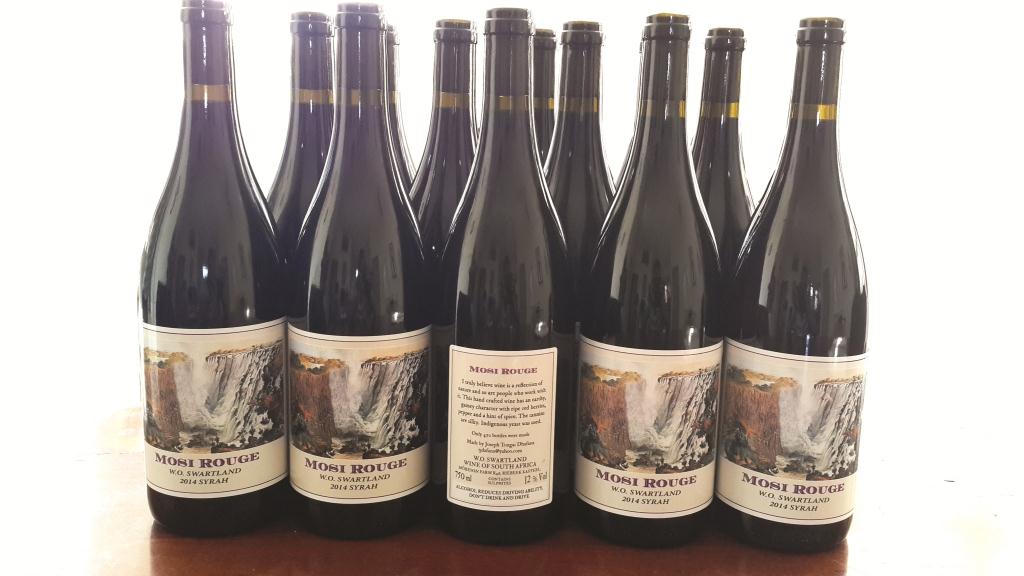It’s a story as ripe and rare as vintage wine, also an unlikely story of an entrepreneur who spent most of his life without laying eyes on a vineyard, but now he owns one.
He grew up among poor farmers in Zimbabwe’s dry province of Masvingo. This is the life and times of Tongai Joseph Dhafana, a Zimbabwean winemaker.
“My parents farmed to pay my school fees. After I completed my ordinary levels I moved to Gweru to work at Sino-Zimbabwe Cement Company,” says Dhafana.
“My first salary in Zimbabwe was 1,099 Zimbabwean dollars but by the time I left in 2009, it was in millions,” he says of his country’s decline.
His rise was difficult and often he felt as crushed as his grapes.
“I relocated to South Africa in 2009. I stayed at Musina refugee camp for two weeks looking for documents that would ease my travel. In Johannesburg I stayed at the Central Methodist Church.”

The Central Methodist Church in central Johannesburg is famous for sheltering refugees. The church opened its doors under the leadership of Bishop Paul Verryn during the xenophobic violence of 2010. It was one of the few refuges from violent mobs roaming the streets looking for Africans from other countries.
Like many in the church, he came up with a quick idea to get out. His destiny lay in Cape Town, a place that would teach him the trade and thrust him into the global stage on his way to becoming a millionaire and a bon viveur.
“In Cape Town I worked as a gardener and was promoted to washing dishes and soon became a bartender. It is in the bar that I would taste my first glass of wine on my birthday.”
This sip of wine was the foretaste of a new life.
“Seeing smiling faces sharing a bottle of wine triggered my curiosity and interest to explore the miracle of wine,” he says.
“Other than smiling faces, I was also fascinated by the vine and the journey the grapes travelled from the winelands to some of the most expensive hotels across the world.”
In 2015, he entered a wine competition that would transform the unknown Zimbabwean into a wine ambassador of Africa’s most industrialized economy.
Dhafana was part of Team SA, which won the 2015 South African Wine Tasting Championships, and travelled to France to compete in the World Blind Tasting Challenge.
“I competed in the blind wine tasting competition with 200 others and booked a spot in the top 20 at Taj hotel in Cape Town. In the finals, I was in top three which secured my ticket to France for the world blind wine tasting championships. We came 12th out of 20, the best result South Africa has ever scored,” he says.
Now he has his own company, Mosi, which make the Mosi Rouge and Fraternity. His wines are sold in Sweden and the United Kingdom. The name Mosi is derived from his home country’s Mosi-oa-Tunya waterfalls – meaning the smoke that thunders – the original name of Victoria Falls.
He has also gone to school to improve his knowledge of winemaking.
“I am balancing my studies with my business. I thought I had found wine when I started the business of wines and with each day I am realizing that wine found me.”
The optimism that took him from his home of Chirumhanzu, one of Zimbabwe’s forgotten districts, is still with him as he looks to a future of wine and millions.
“Our prospects are very positive, and for the 2017 vintage, we are estimating numbers in the region of 10,000 bottles.”
A single google search for his name will take you to a number of wine websites demonstrating his growing influence.
His success has not alienated him from his countrymen who are also seeking fortune in South Africa. The Zimbabwean community in South Africa recently honored his toil with an upcoming entrepreneurship award.
His passion stretches to his closing signature of his email: “In water you see your own reflection; in wine you see the heart of another”.
In an industry dominated by white males and household names, this means a lot for a former refugee who once looked into water and saw only despair.
